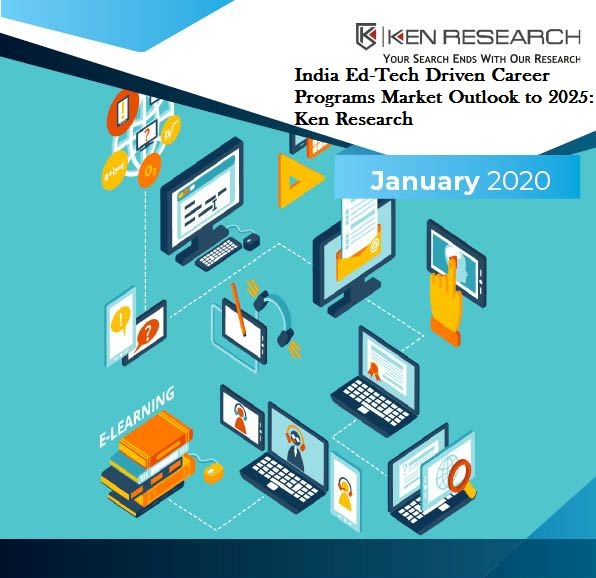Up-Skilling and Re-Skilling in order to stay in touch with the rapidly evolving technological trends is now a standard requirement in India’s professional landscape. Professionals turn towards online learning as a means to achieve the goal, due to their inability to turn back to conventional classroom modes of learning. Ed-Tech players such as Udemy are extending the proposition of Online Self-Paced Practical Learning which allows professionals and students to develop their professional skill-set and work towards achieving their long-term professional goals.
As through our conversation with Mr. Irwin Anand, India MD at Udemy, we attempt to identify how Udemy sees India, with the largest White-Collar graduate workforce, as an exciting investment, and how it’s Marketplace Model serves an Unmatched Value Proposition to Learners.
Q1. Being the first employee for Udemy in India, you would have been involved end-to-end in expanding the brand in the country. How has the company’s journey been during your brief tenure here?
Previously I was with OLX where I was hired as one of the first few employees to help the company grow and scale. Again, with Udemy in India, my mandate as the first employee was to define the local strategy and incorporate all the stakeholders for Udemy, which includes instructors, individual learners, and corporate customers. I have been responsible for setting up Udemy’s first India office in Gurgaon, growing the local team, which is currently double-digit, and deepening the investments in the country. We have a team on the Marketplace end handling the learner and instructor base, as well as a team on the Enterprise end that handles corporate sales and customer success. Our focus is on developing local insights, tailoring the content, and developing a unique user experience. India is the second-largest market for Udemy in terms of revenue and traffic and among the top three growth markets globally. We’re achieving triple-digit growth YoY in India.
Q2. Udemy has a Marketplace model wherein it connects learners to instructors online. Can you briefly explain how the Udemy model works and how is it different from other players in the industry?
Udemy is the largest online learning destination that helps students, companies, and governments gain the skills they need to compete in today’s economy. We provide a platform where instructors can share their knowledge and build a profitable business while learners can have access to the latest skill domains on virtually any topic in the world. We have over 150,000 courses hosted on the platform, taught by more than 57,000 expert instructors. Our marketplace model allows the expert instructors to compete for learners, which ultimately encourages them to make high value-driven course content. Instructors also participate in discussion forums to cater to learner queries, create quizzes, downloadable content, test courses, and exercises. Our instructors are in the best position to develop the next best course which is an important component of our marketplace model. Because Udemy instructors are industry practitioners and experts themselves, they create the courses in a way that the skills are professionally implementable.
For companies, Udemy for Business offers subscription access to 4,000+ business-relevant courses, powerful learning analytics, as well as an easy-to-use platform to host and distribute their own content in one central place. We also offer Udemy for Government, a highly customizable learning platform designed to upskill workers across nations and prepare them for the jobs of today and tomorrow. Both are powered by the Udemy marketplace.
Q3. Which courses or topics are currently in major demand by the Indian audience?
Tech courses are definitely in great demand in India — Python, Data Science, Ethical Hacking, Machine Learning, and Embedded Systems, to name a few. For a practitioner, there are also courses around more specialized topics like MicroPython, Web Development NestJS, and Web Development NodeJS. One of the premises Udemy was built around, was that every learner should be able to find his/her right teacher, and that teacher could be anywhere in the world. With our constant feedback and communication mechanism between the instructors and the students, Udemy provides a powerful 2-way exchange to help students find the best instructor for them.
Q4. In a massively fragmented industry for re-skilling and up-skilling programs in the country, how does Udemy differentiate itself from players such as upGrad, Simplilearn, Coursera, Udacity and others?
Our proposition to the consumer is completely different because of our marketplace business model where courses are created and taught by practitioners in the field. Because our instructors work in their respective fields, they can predict the next big course or topic from the perspective of industry relevance. The courses are also very affordable and that’s one of the reasons why more than 5 million learners are on Udemy, with that number growing at a fast pace. We are growing on the corporate side as well with companies such as Wipro, TechMahindra, TetraSoft identifying with the value proposition of Udemy for Businesses.
Q5. A prominent bottleneck encountered by online skilling platforms is the low completion rates of programs. How is the company endeavouring towards bucking the trend of low course completion rate amongst MOOC platforms?
We don’t believe that completion rates are a proxy for learning or gaining knowledge. Learners usually focus on gathering implementable skills through the courses and may leave the course mid-way once their learning objective, which can be as simple a learning Pivot Tables in an Excel course, is complete. We measure course effectiveness in the form of a ratings and reviews system, but we don’t see much of a correlation between learning effectiveness or learner satisfaction with course completion.
Q6. The adoption of online skilling programs and courses is growing in India, with professionals and students upgrading their skills to stay relevant. According to you how has the Udemy’s learner base growth been?
We have 5 million learners in India currently. Our revenue tripled in India in just one year of operations. Our growth comes down to our value proposition and our ability to offer skills-based training at affordable prices, at a time and place of your choice. This allows learners to choose from thousands of top practitioners from all around the world, regardless of physical location.
Q7. How does the monetization model of the company work?
The consumer marketplace model is basis pay-per-course and offers lifetime access to purchased courses. Courses are comprised of recorded videos in addition to assignments, quizzes, course materials, discussion forums, and exercises. The price point is more or less similar to a Reference Book, while the proposition is much more impactful. The consumer has a thriving rating & reviews system in terms of feedback and tracking learning journeys. For organizations offering learning to employees, Udemy for Business is subscription based and includes curated professionally relevant courses (~4,000 in English). These courses are packaged into a corporate user experience where stakeholders, including HR, Learning and D divisions, can collect learning data and analytics, manage learning paths, mandate people to learn, administer modules, and author content. We also offer companies the option to create courses on Udemy for Business and include API plug-ins for their L&D modules. Udemy for Business is available on an annual, per-seat basis with employees allowed to access entire repository of courses and analytics.
Q8. Which business segment is Udemy more focused on in India?
Consumer and Enterprise business is a priority for us right now, and we have entered the Government space recently. We already had a lot of corporate clients here before even entering India.
Q9. What are the major bottlenecks faced in scaling such a model?
In the context of Udemy, bottlenecks would be in the past tense. Through word of mouth and success stories of others, there are a lot of great instructors on Udemy with a 125% growth y-o-y in new instructors in India. Having said that, when launching a new country base, it’s important for us to identify if the country has needs for courses in the local languages. Currently, vernacular language would be more of an opportunity, rather than a challenge for the Indian market.
Q10. What is the offering pitched across as a part of Udemy for Government? Having experience working with Japanese, Singapore, LA and New Mexico’s governments, do you plan to target the government sector in India as well?
Answer: Udemy for Government follows a similar subscription business model to Udemy for Business. For example, in Singapore, we work with the Skills Future program where every Singaporean completing mandatory skill training is provided free access to Udemy. From India perspective, we will continue to evaluate partnerships and programs with corporations and government entities.
Q11. How does the company’s strategic outlook towards India differ from other markets such as US or Brazil or Singapore?
Two-thirds of Udemy’s students are located outside of the US and half of our instructors are based outside of the US. Our goal across every market is to deliver relevant, fresh content both to individual learners and businesses. Solution for a market like Brazil, where people mainly speak Portuguese will be different because there is an increased need for local language experts. As a lot of people in India are fluent in English, they can already take advantage of our large course catalogue and begin learning new skills.
Q12. Is partnering up with Universities and Academic Institutions in India a part of the company’s plans going forward?
We are open to partnering with Universities in the future. Our core customers are mainly professionals but we are also focussing students in a college environment. We are exploring partnership opportunities with Universities, as content creators, but for now, we think of ourselves as a complementary skill offering to university programs.
For feedback and queries, reach out to the Ken Research Team at ankur@kenresearch.com
To Know More Information on the publication: –
Contact Us: –
Ken Research
Ankur Gupta, Head Marketing & Communications
Ankur@kenresearch.com
+91-9015378249

